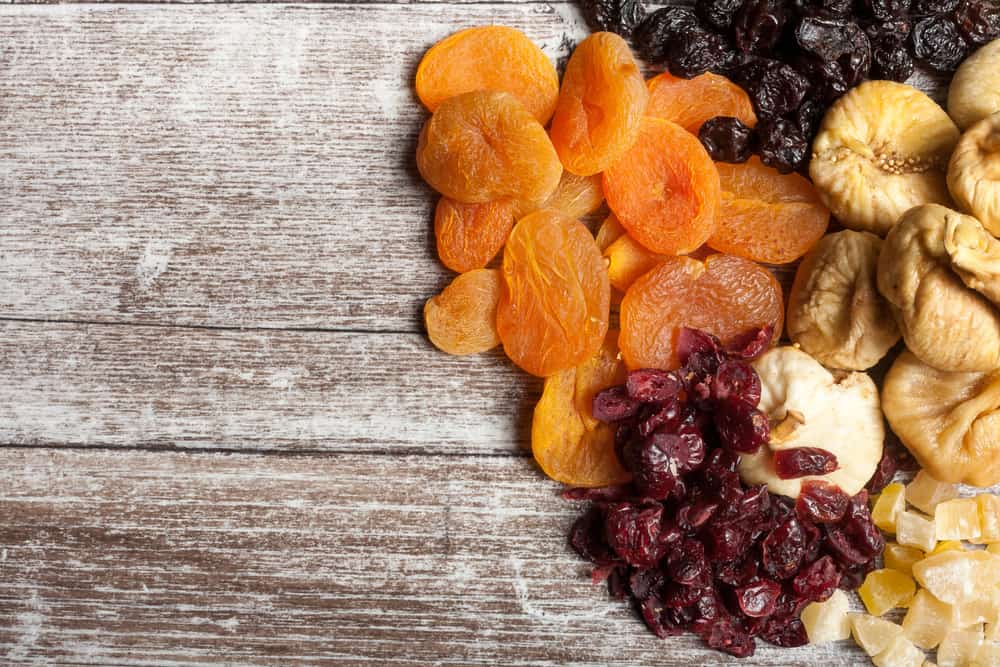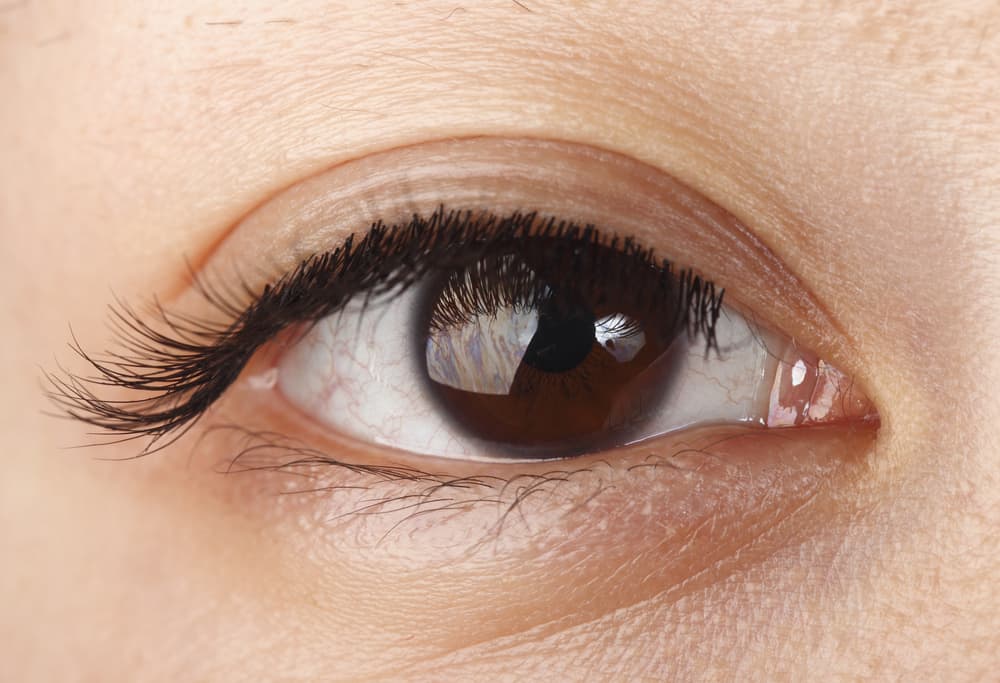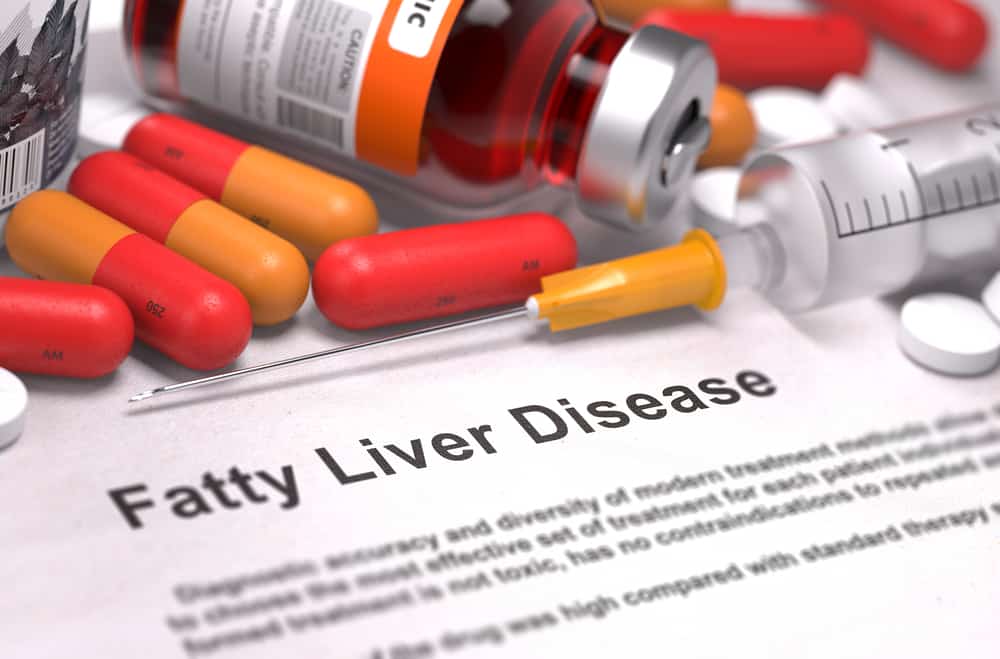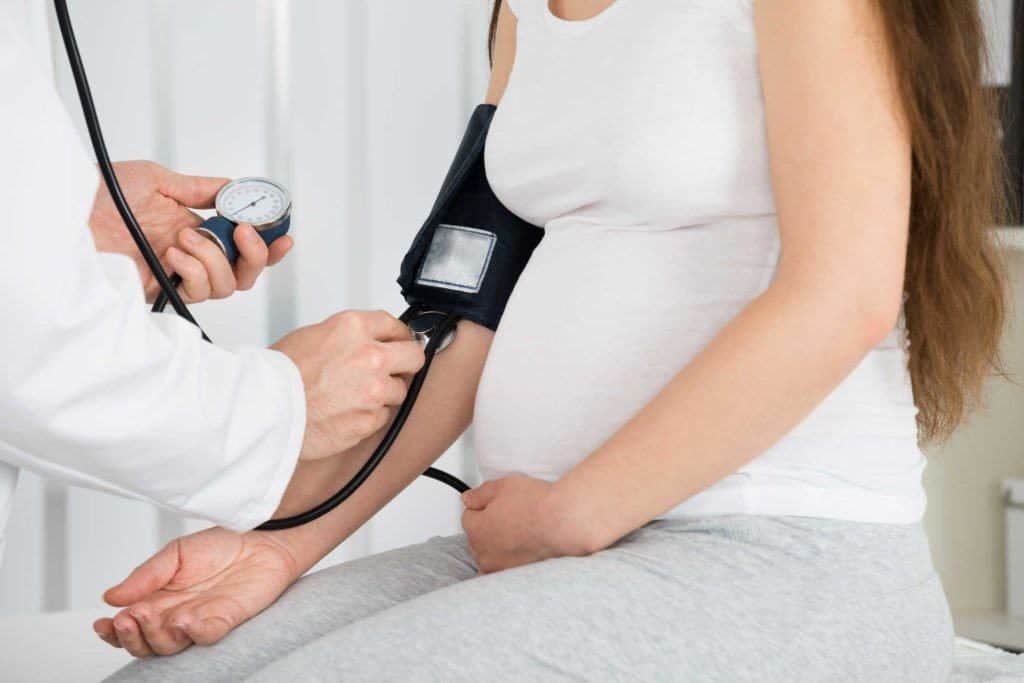Contents:
- Medical Video: How To Stop Acid Reflux | How To Treat Acid Reflux (2018)
- What causes gastric pain due to GERD?
- What are the symptoms of GERD?
- Can GERD disease be cured?
- Various ways to deal with stomach acid that you should know
- The choice of food for stomach acid that is good for consumption
- Foods that must be avoided if you have stomach acid
- 1. Chocolate
- 2. Soda
- 3. Fried foods
- 4. Alcohol
- 5. High fat milk
- 6. Meat high in fat
- 7. Caffeine
- 8. Tomatoes
- 9. Citrus fruits
- 10. Onions
- Get to know various types of stomach acid drugs
- Over-the-counter stomach acid drugs
- Medicines for stomach acid that need a doctor's prescription
Medical Video: How To Stop Acid Reflux | How To Treat Acid Reflux (2018)
Do you often feel pain in the pit of the stomach or feel a sensation of heat in the chest to the throat? If so, you may have a digestive disorder known as GERD. GERD is similar to gastric acid reflux. But even though both make stomach acid go up, stomach acid reflux and GERD are not the same.
Gastric acid due to GERD is chronic and usually occurs at least more than twice per week and can recur at any time. Check out the full review of GERD disease including the symptoms, causes and choices of the best stomach acid drugs, along with ways to prevent and treat acid reflux later on.
What causes gastric pain due to GERD?
The stomach is responsible for breaking down the incoming food so that it can be absorbed by the body. Gastric acid is produced by the stomach to facilitate the work. But when the amount of acid produced is too much, it can cause stomach problems, such as stomach acid reflux
Acid refluxis backflow of stomach acid or rising stomach acid into the esophagus. This acid backflow is actually a normal part of the digestive system movement, so stomach acid reflux cannot be said to be a disease.
However, if stomach acid becomes very frequent, so it creates a burning sensation in the chest and throat (heartburn), that means the stomach ring muscle (sphincter) which functions as an acid retaining valve so that it stays in the stomach no longer functions properly. Well, this condition then causes you to experience stomach acid pain.
Gastric pain is said to be GERD if it occurs at least more than twice per week. Generally this condition occurs after you eat certain foods that can trigger stomach acid to rise. Symptoms of GERD can be brief or can also occur during sleep.
In some cases, the cause of acid in the stomach rises can also be due to pressure on the stomach during pregnancy, obesity, or having stomach hernia syndrome. In addition, someone who consumes excessive amounts of alcohol, smokes, has diabetes, asthma, and connective tissue diseases are also at high risk of developing this disease.
What are the symptoms of GERD?
When stomach acid rises, tissue along the esophagus wall will be irritated by stomach acid. As a result, you will experience heartburn, namely the sensation of heat or pain in the chest which sometimes spreads to the esophagus. This condition usually occurs after eating and the symptoms will get worse at night.
GERD also usually shows symptoms, such as:
- Mouth feels sour
- Sore throat (sore)
- Food feels rising and blocking the esophagus
- Acid on the back of the mouth
- Nausea
- Gag
- Bloated
- Difficulty swallowing
- Cough or wheezing
- Hoarseness
- Wheezing; cough
- Chest pain, especially when lying down at night
- Hiccup
You should contact your doctor immediately if you have symptoms such as a painful chest or shortness of breath. In addition, you should tell your doctor if these symptoms often occur and get worse. Each person's body is different. Always consult a doctor to deal with your health condition.
Can GERD disease be cured?
GERD is caused by a stomach ring (sphincter) muscle that is not functioning normally. There are no stomach acid drugs that can make the muscle return to normal, but these drugs can help relieve symptoms and prevent relapse.
Various ways to deal with stomach acid that you should know
In addition to drugs, stomach pain can actually be easily overcome through a healthier and more balanced diet.
Some of the rules of eating that you need to pay attention to to help overcome recurrent gastric acid are:
- Eat more regularly. One of the causes of acid reflux in the stomach is irregular eating patterns. Therefore, try to have the same meal every day. In addition, you are also advised not to eat two hours before going to bed because it can trigger acid to go up to the throat while sleeping.
- Avoid snacking between meals. This one habit can make digestion difficult to digest too much food. As a result, the body needs quite a long time to digest the food.
- Pay attention to food portions. Another way to deal with stomach acid is to pay attention to the meal portion. Because eating in large portions can trigger reflux. To avoid starvation, you should eat more often but in smaller portions.
- Chew food properly. Although it looks trivial, this one method is important to note. Because this can help digestive enzymes process and digest food more easily, thereby reducing the risk of stomach acid rising or worsening the symptoms of GERD that you experience.
- Avoid drinking too much water when eating.Drinking too much water in the middle of a meal can dilute the acid in the stomach and make the food you eat more difficult to digest.
The choice of food for stomach acid that is good for consumption
Acid in the stomach is susceptible to rise after eating. So, in addition to scheduling a more regular meal, you also need to be more stringent in selecting what you eat every day to deal with stomach acid. Incorrect choice of food can actually make stomach acid rise.
Here are some foods for stomach acid that are good to consume if you are sick with stomach acid:
- Banana.Bananas have a low acidity with a pH level of about 4.5 to 5.2. This makes it able to neutralize acid in the stomach and help relieve symptoms. Besides other citrus fruit bananas like melons, apples, papaya, and pears are also the best choices as food for stomach acid.
- Oatmeal. Oatmeal (oatmeal porridge) contains whole wheat which is rich in fiber so that it can help absorb acid in the stomach so it can prevent stomach contents from rising again. The choice of other high-fiber foods besides oatmeal is wheat bread and rice whole grain.
- Green vegetable. Green vegetables such as broccoli, green beans, celery, cabbage, spinach, and others are food choices for the best stomach acid. This is because these vegetables are low in acid, making it good for consumption to reduce the reflux symptoms you are experiencing.
- Ginger. Ginger has natural anti-inflammatory properties that are good as a treatment for stomach acid and other digestive problems. You can add grated ginger or sliced ginger into your smoothies, tea or cooking.
- Egg whites. Boiled egg white is a good choice as a food for stomach acid. But remember, avoid egg yolks because they contain high fat which can actually worsen your condition when you are sick with stomach acid.
- Lean meat. Lean meat is the best choice as food for stomach acid. Eat skinless chicken breast and lean red meat by steaming, baking, or baking. Avoid processing this type of food by frying because oil can worsen the symptoms of reflux.
- Aloe vera. TAloe vera is known as a natural healer and also for the treatment of digestive disorders, including for GERD.
Foods that must be avoided if you have stomach acid
As mentioned above, paying attention to food intake is an important factor to deal with increased stomach acid. If you get stomach acid, there are some foods and drinks that should be avoided or reduced, namely:
1. Chocolate
Chocolate is one of the foods for stomach acid which must be avoided. This is because chocolate can trigger an increase in stomach acid by causing the sphincter muscle to relax because it contains caffeine and other stimulants, namely theobromine. Not only that, chocolate also contains high fat.
2. Soda
In addition to making flatulence, soda and carbonated drinks can trigger increased stomach acid. Even soda that also contains caffeine can make acidic conditions worse on the stomach. Well, that's why, soda is one of the foods for stomach acid that should be avoided if you don't want to experience nausea, stomach heat, and heartburn.
3. Fried foods
Food for other stomach acids that should be avoided is fried foods. Yes, fried foods are known to also trigger reflux. This food is associated with stomach heat. Symptoms that may be experienced by sufferers are chest pain. In addition, fried foods are also known as triggers for cholesterol.
4. Alcohol
Just like soft drinks, beer, wine, and other liquors can contribute to reflux. Alcohol is believed to relax the valve under the esophagus (fused to the stomach) which can cause reflux.
5. High fat milk
Basically, all high-fat foods can cause reflux. Both milk, butter, or cheese have approximately the same high fat content. So, if you are a fan of cheese and butter, but have stomach acid, you should avoid consuming both types of food. To be safer for consuming low-fat dairy products.
6. Meat high in fat
If you have GERD, you should avoid high-fat meat foods. High-fat meat requires a long time to digest the body so that it can increase excessive acid production. The alternative that you can do is remove fat from meat, and eat meat only once a week.
7. Caffeine
You have read above that caffeine can increase reflux. Caffeine is not only found in coffee, but also in tea. However, you can consume herbal teas such as chamomile because herbal teas usually do not contain caffeine.
8. Tomatoes
If your stomach has a problem, you should avoid tomatoes. This fruit contains citrate and malic acid which can increase acid in the stomach. When you consume too much tomato, the acid can flow into the esophagus. There is no alternative, because even if you serve tomatoes by baking them, this does not reduce the acid.
9. Citrus fruits
Oranges, lemons, lime, and grapefruit are fruits that are included in the citrus. According to research published inAnnals of Otology, Rhinology & Laryngologythat limiting the intake of acidic foods can relieve symptoms of reflux due to acid that rises to the throat, such as coughing and hoarseness.
10. Onions
According to the Oklahoma Foundation for Digestive Research, people who have GERD disease and eat onions have decreased gastric pH in a short time. The lower the pH, the higher the acid will be. This can also cause belching and nausea.
Get to know various types of stomach acid drugs
The gastric acid drug itself consists of two types, namely non-prescription drugs and drugs that require a special prescription from a doctor. Even so, both prescription and non-prescription drugs, you should consult with your doctor to get the best stomach acid medicine according to your condition. Avoid taking these drugs outside of the advice given.
Over-the-counter stomach acid drugs
These types of drugs can usually be found easily at a pharmacy, drug store, or even in a shop without having to redeem a doctor's prescription. In general, there are three types of over-the-counter drugs to treat stomach acid, including:
- Antacids.Some antacids contain simethicone, which is a substance that helps get rid of excess gas in the body. Examples of antacid drugs are Mylanta®, Malox®, Rolaids®, Gaviscon®, Gelusil®, and Tums®.
- H-2 receptor blockers.Histamine-2 (H-2) receptor blockers are used to reduce acid production in the stomach. Examples of this type of drug are cimetidine (Tagamet®), nizatidine (Axid AR®), ranitidine (Zantac®), and famotidine (Pepcid®). The effect of H2 receptor blockers is not as fast as antacids but this drug can reduce acid production in the stomach for up to 12 hours.
- Proton pump inhibitors (PPIs).Proton pump inhibitors (PPIs) are one of the over-the-counter drugs that are more powerful against gastric acid than antacids and H2 receptor blockers. Examples of this type of drug are omeprazole (Prilosec®) and lansoprazole (Prevacid 24 HR®).
Remember, always read the instructions on how to use sour stomach drugs that are listed on the product information label. Read carefully how many doses you need and what interactions might occur from using the drug. If your condition does not change after two weeks of taking over-the-counter medicines, immediately consult your doctor.
Medicines for stomach acid that need a doctor's prescription
If your condition does not improve with over-the-counter medication, your doctor may prescribe more effective medications to treat your stomach acid. Acid reflux drugs from doctors are usually not much different from drugs sold on the market, except drugs that require higher doses. Examples of stomach acid drugs that require a doctor's prescription are as follows:
- H-2 receptor blockers by prescription. H-2 receptor blockers that use recipes generally can relieve heartburn and treat reflux. Examples of these drugs are famotidine (Pepcid®), nizatidine (Axid®), cimetidine (Tagamet HB200®), and ranitidine (Zantac®).
- Proton pump inhibitors (PPIs) with recipes.This medicine is best taken one hour before eating. Examples of proton pump inhibitors that need prescription are esomeprazole (Nexium®), lansoprazole (Prevacid®), omeprazole (Prilosec, Zegerid®), pantoprazole (Protonix®), rabeprazole (Aciphex®), and dexlansoprazole (Dexilant®).
- The medicine for strengthening the lower esophageal sphincter.Baclofen (Lioresal®) is a muscle stretcher and antispastic drug used to strengthen the lower esophageal sphincter. However, bacoflen side effects can cause fatigue or nausea.
If you still have acid reflux even though you have already been treated as mentioned above, the surgical procedure might be considered and recommended by your doctor. This surgical procedure will usually restore the function of the lower esophageal sphincter muscle. Even so, the operation still cannot restore its function normally.











